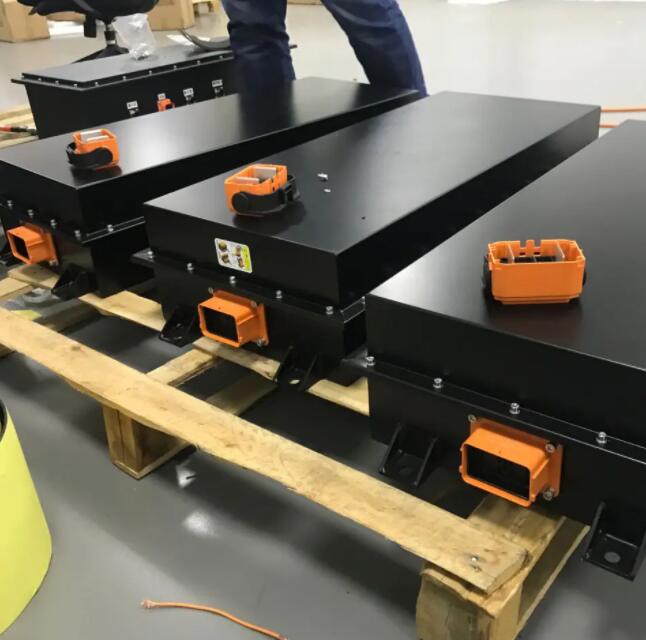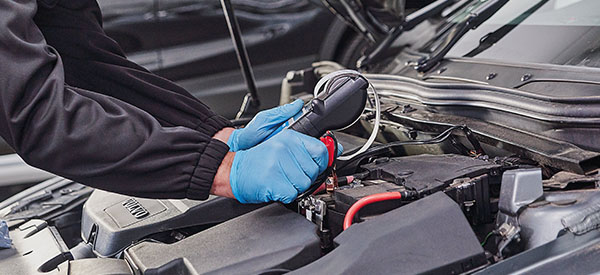electric vehicles Lithium battery suppliers
electric vehicles Lithium battery
Electric vehicles (EVs) typically use lithium-ion batteries as their primary source of energy storage. Lithium-ion batteries are a type of rechargeable battery that have become the preferred choice for EVs due to their high energy density, long lifespan, and relatively lightweight nature compared to other battery technologies.
Here are some key points about lithium batteries in electric vehicles:
Composition: Lithium-ion batteries used in EVs consist of multiple cells, each containing a positive electrode (cathode), negative electrode (anode), and an electrolyte solution. The cathode typically contains lithium compounds, such as lithium cobalt oxide (LiCoO2), lithium iron phosphate (LiFePO4), or lithium nickel manganese cobalt oxide (LiNiMnCoO2). The anode is usually made of graphite.
Energy Density: Lithium-ion batteries have a high energy density, meaning they can store a significant amount of energy in a relatively small and lightweight package. This allows electric vehicles to have longer driving ranges and higher performance capabilities.
Charging and Discharging: Lithium-ion batteries can be charged and discharged efficiently, making them suitable for electric vehicles. They can store energy from the electric grid during charging and deliver it to power the vehicle’s electric motor during discharging.
Range and Performance: The energy density of lithium-ion batteries enables EVs to achieve longer driving ranges compared to other battery technologies. The performance of EVs, such as acceleration and top speed, is also influenced by the power output and efficiency of the battery.
Lifespan: The lifespan of lithium-ion batteries is typically measured in charge cycles, which refers to the number of times a battery can be charged and discharged before its capacity starts to degrade significantly. The lifespan can vary depending on factors such as battery chemistry, usage patterns, temperature conditions, and maintenance. Manufacturers aim to develop batteries with longer lifespans to meet the demands of EV owners.
Safety Considerations: While lithium-ion batteries are generally safe, there have been rare instances of thermal runaway or battery fires. Battery management systems in EVs monitor and control factors like temperature, voltage, and current to ensure safe operation and prevent overcharging or overheating.
Recycling and Sustainability: The recycling of lithium-ion batteries is important to recover valuable materials and reduce environmental impact. Battery manufacturers and researchers are continuously working on improving recycling processes to maximize resource recovery. Additionally, efforts are being made to develop sustainable and environmentally friendly methods for battery production.

Why Choose Lithium Battery For electric vehicles?
High Energy Density
Lithium-ion batteries have a high energy density, which means they can store a large amount of energy in a relatively small and lightweight package. This allows EVs to have longer driving ranges and higher performance capabilities.
Lightweight
Lithium-ion batteries are lightweight compared to other battery technologies, such as lead-acid batteries. This reduces the overall weight of the vehicle, improving its energy efficiency and handling.
Fast Charging
Lithium-ion batteries can be charged at a faster rate compared to other battery technologies. This means EVs can be recharged more quickly, providing greater convenience to drivers.
Efficiency
Lithium-ion batteries have a high charge and discharge efficiency, meaning they can convert a large percentage of stored energy into actual power for the electric motor. This translates to better overall energy efficiency and longer driving ranges.
Longer Lifespan
Lithium-ion batteries generally have a longer lifespan compared to other types of batteries used in EVs. They can withstand a higher number of charge cycles before their capacity starts to degrade significantly. This results in reduced maintenance and replacement costs for EV owners.
Environmental Impact
Compared to internal combustion engine vehicles, EVs powered by lithium-ion batteries produce zero tailpipe emissions, contributing to improved air quality and reduced greenhouse gas emissions. Furthermore, lithium-ion batteries can be recycled, allowing for the recovery of valuable materials and reducing environmental impact.
Technological Advancements
Lithium-ion battery technology has been extensively researched and developed over the years, leading to continuous improvements in performance, safety, and cost. Ongoing advancements and investments in lithium-ion batteries for EVs contribute to the overall growth and development of the electric vehicle industry.
While there are other types of batteries available for electric vehicles, such as nickel-metal hydride (NiMH) batteries, lithium-ion batteries currently offer the best combination of energy density, weight, charging speed, efficiency, and overall performance. As a result, they have become the dominant choice for powering electric vehicles and are expected to continue playing a significant role in the future of sustainable transportation.

-
 Introduction: Our 12V 100Ah LiFePO4 battery is the perfect solution for powering up your devices efficiently. Whether you're using it for your RV, boat, or solar panel system, this battery is designed to provide reliable and consistent performance. Features: 1. High energy density: Our LiFePO4 battery has a higher energy density than other batteries, which means it can...続きを読む
Introduction: Our 12V 100Ah LiFePO4 battery is the perfect solution for powering up your devices efficiently. Whether you're using it for your RV, boat, or solar panel system, this battery is designed to provide reliable and consistent performance. Features: 1. High energy density: Our LiFePO4 battery has a higher energy density than other batteries, which means it can...続きを読む -
 The world of marine adventures is a thrilling and exhilarating one. Whether you are sailing across the vast oceans, cruising along the serene rivers, or enjoying a peaceful fishing trip on a lake, the marine world has something for everyone. However, to truly enjoy and explore this adventurous realm, it is essential to have a reliable starting battery that can...続きを読む
The world of marine adventures is a thrilling and exhilarating one. Whether you are sailing across the vast oceans, cruising along the serene rivers, or enjoying a peaceful fishing trip on a lake, the marine world has something for everyone. However, to truly enjoy and explore this adventurous realm, it is essential to have a reliable starting battery that can...続きを読む -
 Lithium iron phosphate (LiFePO4) batteries are a relatively new rechargeable battery technology that has garnered interest in recent years owing to their improved performance capabilities, longer lifespan, and lower environmental impact than traditional lithium-ion batteries. Despite their rising popularity, the technology is not without its drawbacks. In this article, we will explore the pros and cons of Lithium Iron Phosphate...続きを読む
Lithium iron phosphate (LiFePO4) batteries are a relatively new rechargeable battery technology that has garnered interest in recent years owing to their improved performance capabilities, longer lifespan, and lower environmental impact than traditional lithium-ion batteries. Despite their rising popularity, the technology is not without its drawbacks. In this article, we will explore the pros and cons of Lithium Iron Phosphate...続きを読む -
 The High Capacity 12V 100Ah LiFePO4 Battery is the perfect solution for those looking for long-lasting power solutions. This battery is designed to provide reliable and consistent power to a wide range of applications, from electric vehicles to solar energy storage systems. One of the key benefits of this battery is its high capacity. With a capacity of 100Ah,...続きを読む
The High Capacity 12V 100Ah LiFePO4 Battery is the perfect solution for those looking for long-lasting power solutions. This battery is designed to provide reliable and consistent power to a wide range of applications, from electric vehicles to solar energy storage systems. One of the key benefits of this battery is its high capacity. With a capacity of 100Ah,...続きを読む -
 With the increasing demand for renewable energy, energy storage has become more important than ever before. The development of lithium-ion batteries has revolutionized the energy storage industry, making it possible to store large amounts of energy efficiently and cost-effectively. Among the different types of lithium-ion batteries, the Lithium Lifepo4 battery has become increasingly popular because of its unique properties. ...続きを読む
With the increasing demand for renewable energy, energy storage has become more important than ever before. The development of lithium-ion batteries has revolutionized the energy storage industry, making it possible to store large amounts of energy efficiently and cost-effectively. Among the different types of lithium-ion batteries, the Lithium Lifepo4 battery has become increasingly popular because of its unique properties. ...続きを読む -
 Lithium batteries have become increasingly popular in recent years due to their high energy density, long life span, and low self-discharge rate. They are commonly used in various electronic devices, such as smartphones, laptops, and electric vehicles. However, in some cases, a single lithium battery may not provide enough voltage to power a device, and multiple batteries need to be...続きを読む
Lithium batteries have become increasingly popular in recent years due to their high energy density, long life span, and low self-discharge rate. They are commonly used in various electronic devices, such as smartphones, laptops, and electric vehicles. However, in some cases, a single lithium battery may not provide enough voltage to power a device, and multiple batteries need to be...続きを読む -
 If you're looking to upgrade your motorcycle or other vehicle's battery, a 12V lithium starter battery could be the perfect choice for you. These batteries offer several advantages over traditional lead-acid batteries, including increased power, longer lifespan, and lighter weight. First and foremost, lithium starter batteries offer increased power compared to lead-acid alternatives. This means faster and more reliable...続きを読む
If you're looking to upgrade your motorcycle or other vehicle's battery, a 12V lithium starter battery could be the perfect choice for you. These batteries offer several advantages over traditional lead-acid batteries, including increased power, longer lifespan, and lighter weight. First and foremost, lithium starter batteries offer increased power compared to lead-acid alternatives. This means faster and more reliable...続きを読む

